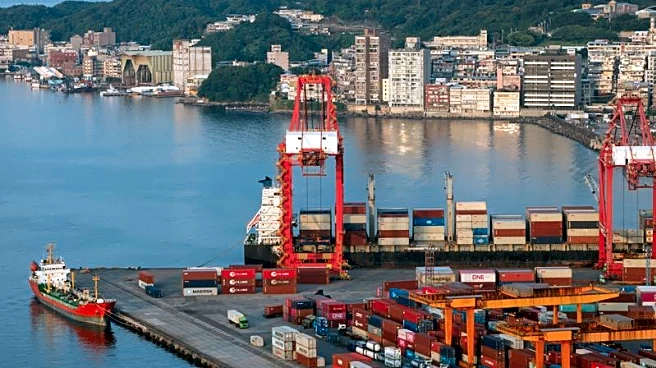What is the story about?
What's Happening?
Jeremy Siegel, a finance professor emeritus at the University of Pennsylvania, has expressed concern over the United States' lack of a strategic reserve for rare earth materials. Siegel's comments come amid escalating trade tensions between the U.S. and China, with President Trump threatening to impose significant tariffs on Chinese exports in response to China's restrictions on rare earth mineral exports. Siegel highlighted China's dominance in the rare earth market, noting that China controls 90% of the refining of these materials, which are essential for various technologies, including smartphones and fighter jets. The absence of a U.S. strategic reserve for these materials, according to Siegel, poses a threat to Western supply chains.
Why It's Important?
The lack of a strategic reserve for rare earth materials in the U.S. is significant due to the critical role these materials play in modern technology and defense systems. China's control over the majority of the global supply and refining capabilities presents a vulnerability for the U.S., especially in the context of ongoing trade disputes. Establishing a reserve could mitigate supply chain risks and reduce dependency on foreign sources, particularly from China. This issue is further underscored by the potential economic impact, as evidenced by the $2 trillion loss in stock market value following President Trump's tariff announcement. The creation of a reserve could stabilize markets and ensure the availability of essential materials for U.S. industries.
What's Next?
The situation may evolve as trade negotiations between the U.S. and China continue. Siegel expressed optimism that the trade conflict would be resolved before the November 1 deadline set by President Trump for additional tariffs. The resolution of these tensions could lead to a recovery in the stock market, as indicated by the rebound in the S&P 500 and Nasdaq Composite following initial losses. The establishment of a strategic reserve for rare earth materials could become a topic of discussion among policymakers, potentially leading to legislative or executive actions to secure these critical resources.
Beyond the Headlines
The strategic importance of rare earth materials extends beyond immediate economic concerns, touching on national security and technological innovation. The U.S.'s reliance on foreign sources for these materials could impact its ability to maintain technological superiority and defense capabilities. Additionally, the ethical implications of mining and refining practices, often criticized for environmental and labor concerns, may influence future policy decisions regarding domestic production and reserve creation.
















